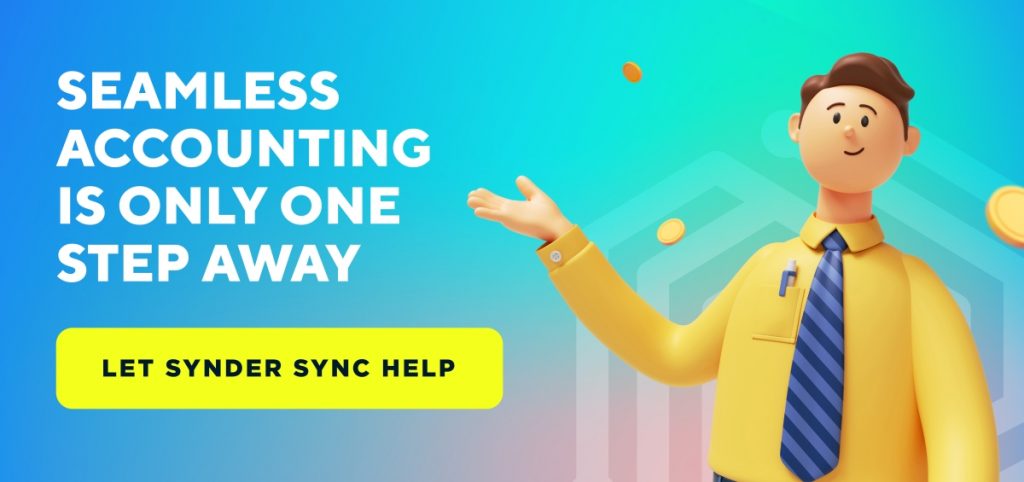Put yourself in the shoes of a real estate professional managing multiple properties, each with its own financial complexities. Tracking rent payments, handling maintenance costs, generating financial reports, and ensuring tax compliance is an overwhelming task. This is where real estate accounting software might become a life-saver. By bringing all financial activities together in one system, this software simplifies your tasks, increases accuracy, and boosts efficiency, allowing you to focus on growing your business more.
In this article, we’ll be looking at the 8 best software currently out there. Stay tuned and keep reading!
Key takeaways:
- Real estate accounting involves tracking income, expenses, taxes, and property operations.
- It focuses on complex transactions, asset management, income streams, depreciation, and long-term investments.
- Choosing the right software depends on your needs: general software for basic tasks, and property management software for broader functions like tenant and maintenance management.
Contents:
1. What is real estate accounting?
2. What is the demand for real estate?
3. What are the key aspects of real estate accounting?
4. How does real estate accounting differ from other types of business accounting?
5. General accounting software vs property management software
6. How to choose the best real estate accounting software
7. Top 5 general accounting software
8. Top 3 property management accounting software
9. BONUS: How to ease your workflow when choosing QuickBooks, Sage, and Xero
10. Wrapping up
What is real estate accounting?
Real estate accounting is all about keeping clear records of money coming in and going out associated with properties and investments. Say you’re running a real estate company that buys, sells, rents, or manages properties. From the accounting standpoint, you need to keep tabs on lots of things – how much you’re spending on repairs, property taxes, and mortgage payments, as well as focus on tracking the income from rent, property sales, etc.
What is the demand for real estate?
Before we dive into the accounting side, let’s see why real estate is worth pursuing in the first place.
Not surprisingly, the demand for real estate in the United States is booming. By 2026, the market is expected to reach nearly $119.80 trillion. Looking ahead, from 2024 to 2028, it’s projected to grow steadily at an annual rate of 4.51%. This growth could lead to a market volume of US$142.90 trillion by the end of 2028. This expansion reflects strong interest and investment in real estate, driven by factors such as population growth, urban development, and increased business activities across the country. All of these trends make real estate a really attractive industry to be in right now.
What are the key aspects of real estate accounting?
Income & expenses tracking
Income and expenses tracking involves recording all money received from rent, property sales, and other property-related earnings, as well as business costs such as maintenance, property management fees, utilities, insurance, taxes, and loan payments.
Financial records
Financial records involve recording all transactions, including rent payments, expenses, and sales. Also, you need to compare your records to your bank statements to make sure everything matches up.
Financial reporting
Financial reporting involves generating P&L, Balance Sheet, and Cash flow statements to understand profitability, financial health at a particular moment, and whether you have enough cash to cover your expenses.
Tax compliance
Real estate businesses have to file taxes accurately to avoid penalties like any other business. They can benefit from various tax deductions and credits, including those for mortgage interest, depreciation, and operating expenses.
Property management
Tenant records track lease details and payment histories while maintaining records of maintenance and repairs ensures properties stay in good condition and aids in financial planning.
How does real estate accounting differ from other types of business accounting?
Real estate accounting is different from other types of business accounting mainly in terms of the focus and specific needs it addresses. Let’s take a look at the main points why it stands out:
| Point | Description |
| Complex transactions | Complex transactions, such as property sales, leasing, and rental income, require particular accounting treatments. |
| Changing the value of fixed assets | Fixed assets such as buildings and tracts of land can increase or decrease in value over time. |
| Income streams | Real estate businesses earn revenue through rental income, lease income, or property sales, so they need to distinguish between various types of cash flows. |
| Depreciation | Assets in real estate investments tend to depreciate over time because they are exposed to wear and tear. |
| Long-term perspective | Direct investments in real estate, such as property development or portfolios, can be strategic and long-term. |
Since we’ve already identified the specifics of real estate accounting, let’s take a look at how different real estate accounting software gets the job done.
General accounting software vs property accounting software
Before you consider your options, ask yourself: Do I need specialized property accounting software, or is standard accounting software sufficient for managing my tasks? Let’s examine the difference.
What’s general accounting software?
General accounting software is designed for a wide range of users to manage balance sheets, track revenues, and expenses, and prepare financial statements.
What’s property management software?
Property management software covers a broader range of tasks beyond finances. It helps manage tenants, leases, and maintenance schedules, facilitates communication, and sometimes even helps market vacant units. It’s designed to make day-to-day property management easier by handling rent collection, maintenance requests, and tenant relationships.
How to choose the best real estate accounting software
When deciding on the best real estate accounting software for our list, we looked at several key factors. These boiled down to the five questions that people often ask when choosing software like this:
- What features does it offer?
- How quickly can you learn to use it?
- Does it fit your budget?
- How good is the support?
- Does the app have a good rating?
Let’s explore the best options available.
Top 5 general accounting software
1. QuickBooks
QuickBooks is a general accounting software widely used across various industries, including real estate. It’s designed to handle a range of accounting tasks such as invoicing, expense tracking, payroll, and financial reporting (P&L, balance sheets, cash flow).
- Free trial: Typically 30 days.
- Pricing: Starts at around $30 per month.
| Pros | Cons |
| Integrates with numerous third-party applications | Can require a steep learning curve |
| Automatically imports and reconciles bank transactions | Hard to set up, and simple to mess up |
| Provides versions and packages for businesses of all sizes | Pricing can be costly for large portfolios |
| Can be customized to fit various business needs | Limited users per plan |
2. Xero
Xero is a cloud-based accounting software that provides financial tools like invoicing, expense tracking, bank reconciliation, payroll, and reporting. Xero supports integrations with various third-party apps, boosting customization for diverse business needs.
- Free trial: Typically 30 days.
- Pricing: Starts at around $15 per month.
| Pros | Cons |
| Provides detailed P&L, balance sheets, and cash flow reports | Challenging to manage large real estate portfolios |
| Helps manage bills with batch payments and scheduling | Costs increase with additional features and options |
| Offers online storage | Limited multicurrency support |
3. Sage Intacct
Sage Intacct offers comprehensive accounting features, customizable reporting, and integration with other business systems. It’s popular for its advanced analytics, which helps manage property finances efficiently while ensuring compliance and data security.
- Free trial: 30-day free trial.
- Pricing: $11 per month.
| Pros | Cons |
| Simplifies complex order processes | No payroll processing |
| Automated inventory tracking | No free plan available |
| Automates bank reconciliations | The UI may feel outdated |
| Multicurrency support | Some features are available as paid add-ons only. |
4. Zoho Books
Zoho Books is an intuitive, cost-effective, and user-friendly cloud-based accounting software. It simplifies financial management with features like invoicing, expense tracking, bank reconciliation, and financial reporting. It also integrates smoothly with other Zoho applications and third-party tools (50+ apps). Zoho Books offers a mobile app that allows you to manage accounting from anywhere.
- Free trial: Typically 14 days.
- Pricing: Starts at around $15 per month.
| Pros | Cons |
| Maintains tax records & calculates tax liabilities | $2.50/month per extra user beyond plan limits |
| Offers project task planning solutions | Some integrations may require additional fees. |
| Has a beginner-friendly interface and a free plan | Payroll services can be confusing. |
| Allows to create sub-accounts for individual properties | Limited multicurrency support |
5. FreshBooks
This web-based accounting software is ideal for real estate owners due to its user-friendly features, such as time and expense tracking, payment management, invoicing, and more. Key features include auto-payment reminders, branded invoices, and online payment acceptance.
- Free trial: Typically 30 days.
- Pricing: Starts at around $19 per month, with discounts available during promotions.
| Pros | Cons |
| Generates P&L reports, sales tax summaries, and expense reports | Advanced features for an additional fee |
| Allows receipt scanning, email forwarding, and bank expense imports | No free plan |
| Enables accurate logging of billable hours | No client portal |
Top 3 property management accounting software
1. Buildium
Buildium is a property management software that helps landlords and property managers automate tasks like lease tracking, tenant management, maintenance, accounting, and reporting. It’s designed to simplify property management operations, offering tools for rent collection, maintenance requests, tenant communication, and financial reporting. Buildium’s cloud-based platform allows users to access information from anywhere, making it a versatile solution for real estate professionals aiming to streamline their operations.
- Free trial: Typically 14 days.
- Pricing: $52 per month.
| Pros | Cons |
| Management of large portfolios | Requires time to learn for new users |
| Has an intuitive mobile portal | Managing extensive portfolios may require additional setup |
| Provides extensive training materials | May not fully support international transactions |
| Manages the entire tenant lifecycle | Can be expensive for small landlords |
2. AppFolio
This is property management software that helps landlords and property managers manage leasing, rent collection, maintenance, and financial reporting for residential and commercial properties. It’s cloud-based, and offers convenient access and tools for online payments, ideal for streamlining real estate management operations.
- Free trial: Typically 14 days.
- Pricing: $1.49 per unit ($298 minimum spend per month).
| Pros | Cons |
| Automates billing, late fees, lease renewals, and financial reconciliations | Can be expensive for portfolios with fewer than 200 properties |
| Facilitates automated rent collection | Lacks integration with QuickBooks Online |
| Manages security deposit accounts effectively | Requires the learning curve for new users |
| Provides training resources for real estate professionals | Some integrations with niche software may be complex |
3. Landlord Studio
Landlord Studio is designed to assist landlords and property managers in managing their rental properties. It offers features such as tenant management, lease tracking, rent collection, income and expense tracking, and financial reporting. Landlord Studio aims to simplify property management tasks through a user-friendly interface, allowing users to handle all aspects of rental property operations in one platform.
- Free trial: Typically 14 days.
- Pricing: $12 per month for 3 units.
| Pros | Cons |
| Intuitive & easy-to-navigate interface | May lack advanced features compared to other similar software |
| Has a GPS mileage tracker, and smart scan receipts help | The range of features might be overwhelming for those with simple needs |
| Instantly generates customizable reports in .csv or PDF formats | Learning curve for new users |
| Offers the first three properties for free | May have limited integration options with other software |
Note: AppFolio’s and Landlord Studio’s distinctive feature is that they use a pricing model where they charge a set fee for each rental unit managed per month. This means the cost depends on how many units you manage, making it easier to budget based on your property portfolio size.
BONUS: How to ease your accounting workflow when choosing QuickBooks, Sage Intacct, and Xero
If you’re a QuickBooks, Xero, or Sage Intacct user, you have a special opportunity to simplify your accounting workflow.
Synder Sync is a cloud-based accounting software solution designed to smooth the operations between the payment provider and the accounting software. All you need to do is to select your payment platform, and accounting software like QuickBooks, Sage, or Xero, and integrate them seamlessly using Synder Sync to automate your tasks. No entry errors, no duplicates, just the way you like it.
Top features:
- Synder works with over 30+ platforms to consolidate all your financial data in one place.
- Synder matches product names between your sales platforms and the accounting system.
- Synder handles multicurrency transactions seamlessly by automatically converting sales in foreign currencies to your home currency.
- Synder prematches amounts from your bank statement to your bookkeeping records for easy one-click reconciliation—all you have to do is confirm the match.
- In Synder, you can effortlessly undo any previously completed synchronization with just one click right within Synder.
- Synder’s “Reporting” feature helps out with sales analysis, expense tracking, creating P&L statements, and Balance Sheets.
See for yourself how the work is done by booking a seat on a Weekly Public Demo with Synder specialists who have answers to all your questions and sign up for a free trial to get your own hands-on experience!

Wrapping up
Nowadays, it’s very important to choose the right software to manage your real estate accounting. You need not only to save your time but also to make informed investment decisions. And that’s where the accounting software comes in. You have lots of options to choose from. It can be just basic accounting tools or comprehensive property management solutions. Some apps are designed for accountants with experience, while others are created with beginners in mind.
The 5 best real estate accounting software options and the top 3 property management tools mentioned earlier combine functionality and user-friendliness. They handle financial tasks, ensure compliance, and manage complex property management needs, reducing your workload and boosting productivity. These tools cover all parts of your real estate business, from making financial tasks easier to organizing property management. The decision is left to you as to which one to choose.
Share your thoughts
How has real estate accounting software changed your property management routine? Share your insights and experiences below,
FAQs
Why is real estate accounting important?
Real estate accounting is important because it helps property owners and managers track finances accurately. It ensures they know how much money is coming in from rent and going out for expenses like maintenance and taxes. This allows them to make wise decisions about managing the properties and avoid acute financial problems.
What is commercial real estate software?
Commercial real estate software aims to streamline day-to-day operations and cover overall property management tasks, including tenant relations and maintenance, alongside financial tracking.
What is accounting software for real estate developers?
Accounting software for real estate developers specializes in the financial aspects of development projects. It focuses on budgeting, cost management, and revenue tracking specific to the project lifecycle and concentrates on the financial health, profitability, and compliance of development projects.
Is QuickBooks good for realtors?
Yes, QuickBooks is a good choice for realtors. It helps manage finances by tracking income and expenses, generating invoices, and producing financial reports. QuickBooks can also handle payroll, manage tax filings, and integrate with other real estate software, making it a comprehensive tool for real estate professionals to keep their finances organized.
What software do realtors use?
Realtors commonly use software like QuickBooks, Xero, and Sage Intacct for accounting purposes. For property management, they often use specialized software like Buildium, AppFolio, and Landlord Studio to handle tasks such as lease tracking, tenant management, and maintenance scheduling.
What accounting method do realtors use?
Realtors usually use the accrual method of accounting because it gives a clearer picture of financial performance by recording income and expenses when they happen. Some might prefer the cash basis method, which is simpler and records transactions only when money is exchanged.







I am interested to learn from many websites’ content but I have found amazing knowledge about real estate accounting and property management on synder.com
Great blog you have got here.. It’s hard to find quality writing
like yours nowadays. I seriously appreciate individuals like you!
Take care!!
I really like what you guys are usually up too. This type of clever work and reporting!
Keep up the terrific works guys I’ve you guys to my blogroll.
Thank you for your feedback! We’re doing our best to provide you with comprehensive pieces.
It’s actually a great and helpful piece of information. I’m happy
that you shared this useful information with us.
Please keep us informed like this. Thanks for sharing.